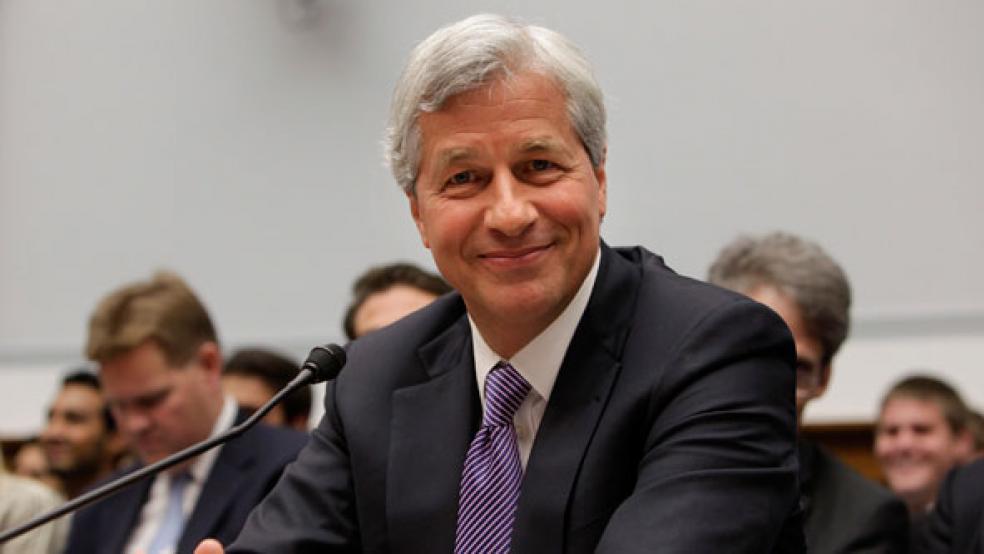
Call it a triumph of practicality over idealism.
Jamie Dimon not only survived a nonbinding vote to unseat him from his role as chairman of JPMorgan Chase (NYSE: JPM), but the proposal to split the roles of CEO and chairman got less support from shareholders than it received last year. Indeed, while a similar resolution won the support of 40 percent of the shareholder vote at last year’s meeting, this year only 32 percent voted in favor – a shock to many corporate governance activists.
The surprising vote tally capped a very public battle. JPMorgan had lobbied shareholders aggressively to vote against the proposal, and Dimon had indicated that he might leave the company if the vote went against him. Several institutional investors, supported by two major proxy advisory services, Institutional Shareholder Services (ISS) and Glass Lewis, also waged a notably aggressive campaign to split the roles. Separating the two, the proxy advisors said, is almost always better for shareholders. “Research suggests that combining the positions of chairman and CEO may hinder a board’s decision to dismiss an ineffective CEO,” Glass Lewis said in its recommendation to JPMorgan Chase shareholders to vote in favor of dividing the two roles.
Instead, at Tuesday’s annual meeting, shareholders opted for the devil they knew over the ruckus they feared might be provoked by a slap to Dimon. They had expected that the $6.2 billion trading losses incurred by the bank in the now-infamous “London Whale” debacle last year, together with the governance failings exposed in the case, would boost support for the measure.
That’s especially true in light of a study released last June by GMI Ratings, a corporate governance analysis firm, that showed that executives who wear the chairman’s hat are not only about 50 percent more costly than those who just serve as CEO but also are 86 percent more likely to be deemed to have “aggressive” financial reporting. Meanwhile, those with an independent chairman were less likely to have problems with such factors as SEC filings.
But there’s idealism and then there is pragmatism. While some of the shareholders who ended up casting their ballots against the proposal may well prefer to have an independent chairman, the question is, who would that be, and at what price? Let’s face it: Overseeing the board of the country’s single largest financial institution, with a finger in every conceivable pie, is an almost surreally complex challenge.
That is particularly true at this point in both the history of the company and the industry. The bank not only is trying to deal with the fallout from the Whale but with other regulatory problems, from controversy surrounding its handling of delinquent credit card accounts to allegations that it manipulated energy commodity markets. Meanwhile, the bank is trying to shape the way new regulations are implemented and to push back against what Dimon has made clear he views to be over-aggressive regulators.
Then, too, any incoming chairman would have to deal with Dimon, a strong personality and someone who has made it very clear that he didn’t want to relinquish the job. Odds are that finding someone capable of filling the post may have ended up being independent in name only – someone with the right qualifications on paper but without the titanium backbone it would take to challenge Dimon in any meaningful way. The corporate world is full of these paper tigers.
That is assuming that Dimon would have stuck around to play ball. The company made it clear, albeit indirectly, that had Dimon been pushed out of the chairman’s role, he wouldn’t stick around as CEO, either. Dimon’s supporters made the same argument in the most public of ways, with Home Depot (NYSE: HD) founder Ken Langone telling Bloomberg television before the vote that he was “terrified” that Dimon would step down, and that “the exit will blow your mind.”
The bank might have found itself in the position of not only having to seek out a chairman but replace Dimon – the man who steered it through the financial crisis and made it arguably the most successful U.S. financial institution after the meltdown. As one institutional investor and Dimon employee told The Wall Street Journal, “you just don’t find many good benevolent dictators running a company” – but that Dimon is one of ‘em.
The risks of these various scenarios were overwhelming – and perhaps, in the eyes of those shareholders who cast their ballots ahead of Tuesday’s meeting, far greater than the risk of another London Whale or two.
What’s next? Well, look for a board shakeup, and the departure of some of the directors who didn’t win support from shareholders, like museum director Ellen Futter. That will be a kind of sop to corporate governance activists. Clearly, while shareholders are content with Dimon’s leadership, the same can’t be said for the company’s board.
Meanwhile, shareholders get their own reward: The bank announced a big increase in the company’s dividend, to 38 cents a share from 30 cents previously. On top of the relief rally in the bank’s share price after the meeting, that was plenty of good news for one day.






